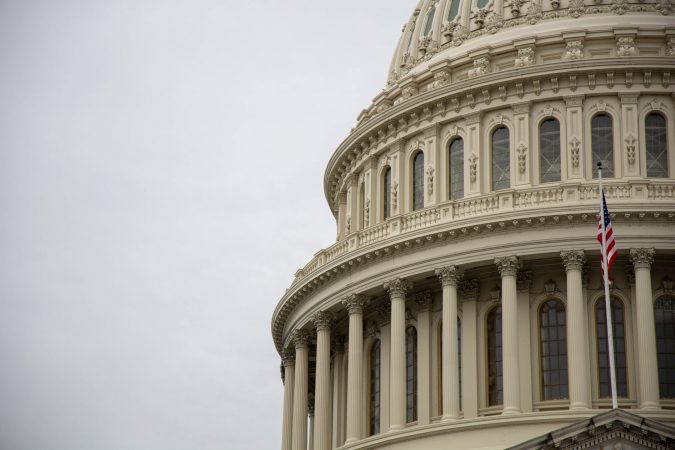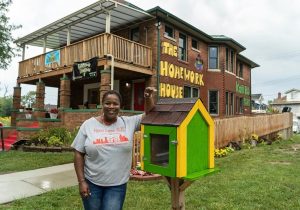January 11th is National Human Trafficking Awareness Day, a time of the year where we look at one of the most destructive practices plaguing our society, and how we can work to address it. A dreadful aspect of the human trafficking epidemic is sex trafficking, a practice that was targeted by Congress in 2018 through two joint bills that, after passing, may have caused more harm than good.
WHAT IS FOSTA-SESTA?

PHOTO PEXELS
FOSTA-SESTA is a set of two bills that aimed to make it easier to curb illegal sex trafficking online. The House bill, known as FOSTA, the Fight Online Sex Trafficking Act, and the Senate bill, known as SESTA, the Stop Enabling Sex Traffickers Act. While initially hailed by activists, celebrities and members of congress, the legislation came with sidenotes, and in late 2019 it was realized the law was doing more harm than good when considering the individuals it was aiming to protect.
A glaring issue with the legislation that some have problems with is that FOSTA-SESTA was put into law without thoroughly examining the data behind sex trafficking and sex work. Those in support of the Bill made their claims, but almost two years down the line, the impact of the legislation has yet to be explored, with some experts fearing it may have created a more dangerous situation for those that conduct their business online, in particular, sex workers.
Speaking with DetroitIsIt about the matter, Professor Bridgette Carr, Associate Dean for Strategic Initiatives at the University of Michigan Law School, and Director of the Human Trafficking Clinic stated that FOSTA-SESTA was passed with little to no data about the impact on sex workers and sex trafficking as a crime, to back up its claims. She believes that before any further legislation is proposed that would target sex trafficking, real data and information around the matter must be acquired to have a better understanding of the situation.
“I think before you can do something like FOSTA-SESTA, you have to understand the prevalence, FOSTA-SESTA is ten steps down the line. We can’t talk about how we’re going into something that we can’t even get our arms around. If we could put as much energy into getting a reliable, evidence-based prevalence number in the United States as we did about the hoopla surrounding FOSTA-SESTA, we would be so much farther along in the fight against sex trafficking than we are,” said Carr. “Instead, we’re stuck with a bad law that makes grandiose claims that can’t be verified, that is likely harming a group of people who shouldn’t be harmed.”
THE ISSUES AROUND THE LEGISLATION

PHOTO PEXELS
One of the first issues with FOSTA-SESTA is that by focusing solely on policing sex trafficking, statistics and data about that specific topic is hard to come by. Thus, when crafting legislation and basing it off of specific claims, congress may not always have the correct information.
A post from the Polaris Project cites the International Labour Organization as estimating there are almost 40.3 million victims of human trafficking globally. The same Polaris post is used in an article by the National Human Trafficking Hotline and also cites the same number. An appalling statistic, it takes into account all forms of human slavery, not only sex trafficking, which creates a hole in the data when looking to address sex trafficking solely.
Another aspect of FOSTA-SESTA that was brought up by groups like Human Rights Watch is that it contradicts the safe harbor rule of the internet, specifically Section 230 of the 1996 Communications Decency Act, which essentially allowed for the internet to thrive on user-generated content. When FOSTA-SESTA was put into law, it held social platforms and ISP’s responsible for the information users on the sites or platforms the users may have created.
After the signing of the Bill, deplatforming became an issue for those using selling sex over the internet. For those unfamiliar, Deplatforming occurs when someone loses access to an online platform either by a website shutdown or a restriction, and in the case of FOSTA-SESTA, it meant some sex workers lost the ability to conduct business on certain websites.
This became problematic when sites like Craigslist terminated certain sections entirely rather than to police the site for content that could constitute as sex trafficking. The personals section of Craigslist previously offered sex workers a place where they could interact with other sex workers through forums, run background checks on potential clients and check the “bad date lists,” created to warn each other of potentially dangerous clients.
According to a study conducted by West Virginia University and Baylor University and cited by Think Progress, in 2017, homicide rates fell by 17% after Craigslist opened its personals section. The study looked at the rate of female homicides in various cities prior to and after Craigslist opened the erotic services section on its website.
By terminating platforms like Craigslist’s personal section, FOSTA-SESTA has also made the job of fighting back against sex trafficking more challenging for law enforcement. The belief is that those who may have been using a site for trafficking purposes, they could simply move their business to another server. When speaking with Carr, she criticized this practice, believing that shutting down sites did not necessarily stop the harmful actions that may have been perpetrated on the site.
“When you are working in an industry that has to be so underground, the ability to communicate with your community about who is safe and who is not is one way to help keep things in check,” shared Carr. “I’m not happy that Backpage was benefiting off of the sale of human beings, but this belief that we can shut down any one website on the internet and it takes away what is happening on that website is just ludicrous, that’s not how the internet works. You’re just moving these servers into other countries that we can’t access. We’re just making things further out of reach for law enforcement that wants to prosecute these people.”
WHAT IS NEEDED IN 2020?

PHOTO PEXELS
Due to the adverse reactions brought about by FOSTA-SESTA, U.S. Rep. Ro Khanna (D-CA), U.S. Rep. Senator Ron Wyden, (D-ORE) and Sen. Elizabeth Warren (D-MASS) sponsored the SAFE SEX Workers Study Act, legislation that would require an assessment of impacts on the health and safety of those who trade sex and what effect losing access to internet platforms may have on their well-being. Announcing the Bill on December 19th of last year, it featured the support of dozens of advocacy groups, including the American Civil Liberties Union, Lambda Legal, Human Rights Campaign, and the National LGBTQ Task Force Action Fund.
Appearing in Senator Khanna’s announcement video for the legislation, Lambda Legal Staff Attorney Puneet Cheema stated, “The Safe Sex Workers Study Act is important because it acknowledges the reality that some people trade sex for economic survival, to meet their basic needs for food and shelter. Some members of the LGBT community, particularly transgender women of color, sometimes rely on sex work because they face extreme discrimination in the formal employment sector. This bill is historic in recognizing that the lives, health, and safety of people who trade sex matter.”
While the legislation is in no way a solution to the epidemic of sex trafficking, it would be the first step in addressing an issue that has little to no hard evidence to back up any proposed solutions. Addressing any form of trafficking is an incredibly sensitive and crucial matter, and as we see with FOSTA-SESTA, legislation aimed at curbing something like online sex trafficking can also cause harm. That is why the SAFE SEX Workers Study Act will be critical in the eventual drafting of legislation that will work to create a safe environment for sex workers free of exploitation and help to ensure anti-trafficking efforts don’t harm the people they intend to protect.
Human Trafficking is a nefarious crime plaguing society. If you or someone you know requires assistance, do not hesitate to call the National Human Trafficking Hotline toll-free hotline, 24 hours a day, 7 days a week at 1-888-373-7888. They offer the ability to speak with specially trained Anti-Trafficking Hotline Advocates and provide support in over 200 languages to those in need.
























[…] approximately 20 million people are currently entrapped in some form of slavery, including sex trafficking, labor trafficking, and domestic servitude. In terms of crime prevalence, most estimates put human […]